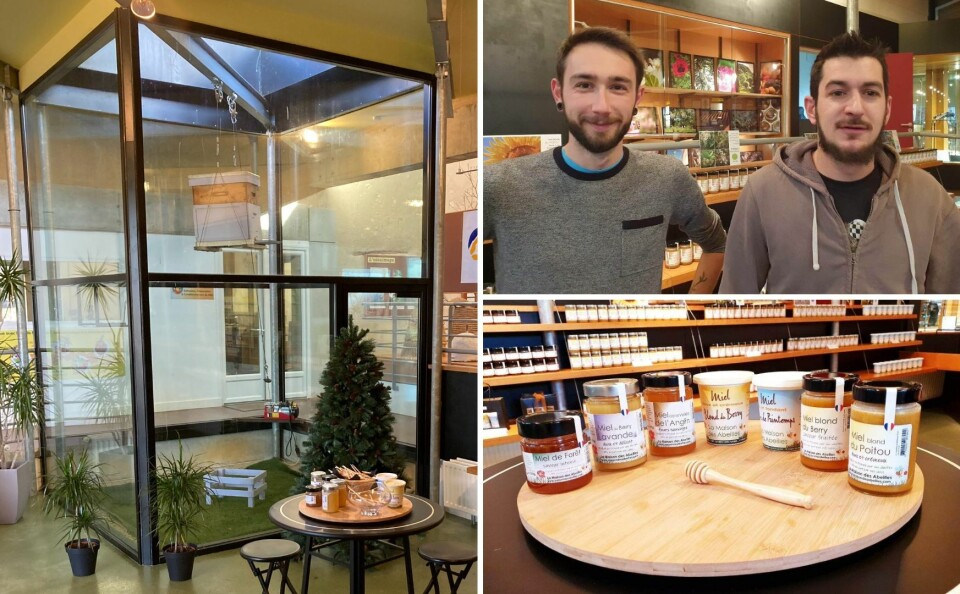-
Rugby vocabulary to know if watching the Six Nations in France
From un tampon to une cathédrale, understand the meaning of key French rugby terms
-
Duck Cold! Four French phrases to use when it is freezing outside
We remind you of French expressions to use to describe the drop in temperature
-
When and why do we say le moral dans les chaussettes?
We explore this useful expression that describes low spirits
French honey-maker and fourth generation beekeeper shares skills
His farm has a working beehive behind glass, a breeding programme and ‘bee safaris’ for children and adults

La Maison des Abeilles in Ingrandes (Indre) was opened by Bruno Robrolle’s parents Louis and Béatrice Robrolle-Mary in 2008.
“I’ve been around bees since I was a child,” he says.
He now works with an associate, Louis Jules Moteau, and has hives spread across four departments; Indre, the Cher valley, the banks of the Creuse, Anglin and beyond.
In total they have 460 ruches (hives), each containing 15-40,000 bees.
Spreading hives out keeps yields stable
“Having them spread over such a wide area means that if the weather is bad in one place and yields go down, the weather will probably be better somewhere else where yields will hopefully be unaffected.”
He is the fourth generation of his family making honey on the farm, and says everything is still done in-house.
“The two of us look after the bees, collect the honey, process and package it, and sell it from our own boutique.”
They produce a full range of honeys with varying textures (runny through to thick) and flavours.
The boutique also sells cosmetics and wellness products derived from honey and beeswax.
“At the moment we buy those in but we plan to make them ourselves in the future.”
Read more: Beekeeping in France: What are the rules for setting up an apiary?
Transmitting knowledge is a passion
They also breed ‘Frère Adam’ and ‘Abeille Noire’ queen bees, and swarms of bees for other beekeepers, and have an educational programme teaching children and adults about apiculture and beekeeping.
“In the summer months we organise ‘bee safaris’ on certain dates.
“People come along and we kit them out in protective clothing and we go out to visit the hives, and we explain what the bees are doing and how they make honey.” (Safari places need to be booked in advance.)
They also have a small classroom which they use when school groups visit.
“Transmitting our knowledge is a real passion for us,” he says.
“We have a hive in the shop which is separated from the visitors by a glass wall so we can do demonstrations, and they can see everything with no risk of being stung.”
Their honeys are available from the boutique as well as online.
“People like to know where their food comes from, and who made it. It’s the only guarantee of quality.
“And buying local honey is an excellent way of supporting local bees which contribute so much to local biodiversity.”
Related articles
Normandy black bee gets protected species status and queen bee project
Help bees - grow their favourite colour flowers in your French garden
‘Our hives protect bees’: alternative way of beekeeping made in France
























